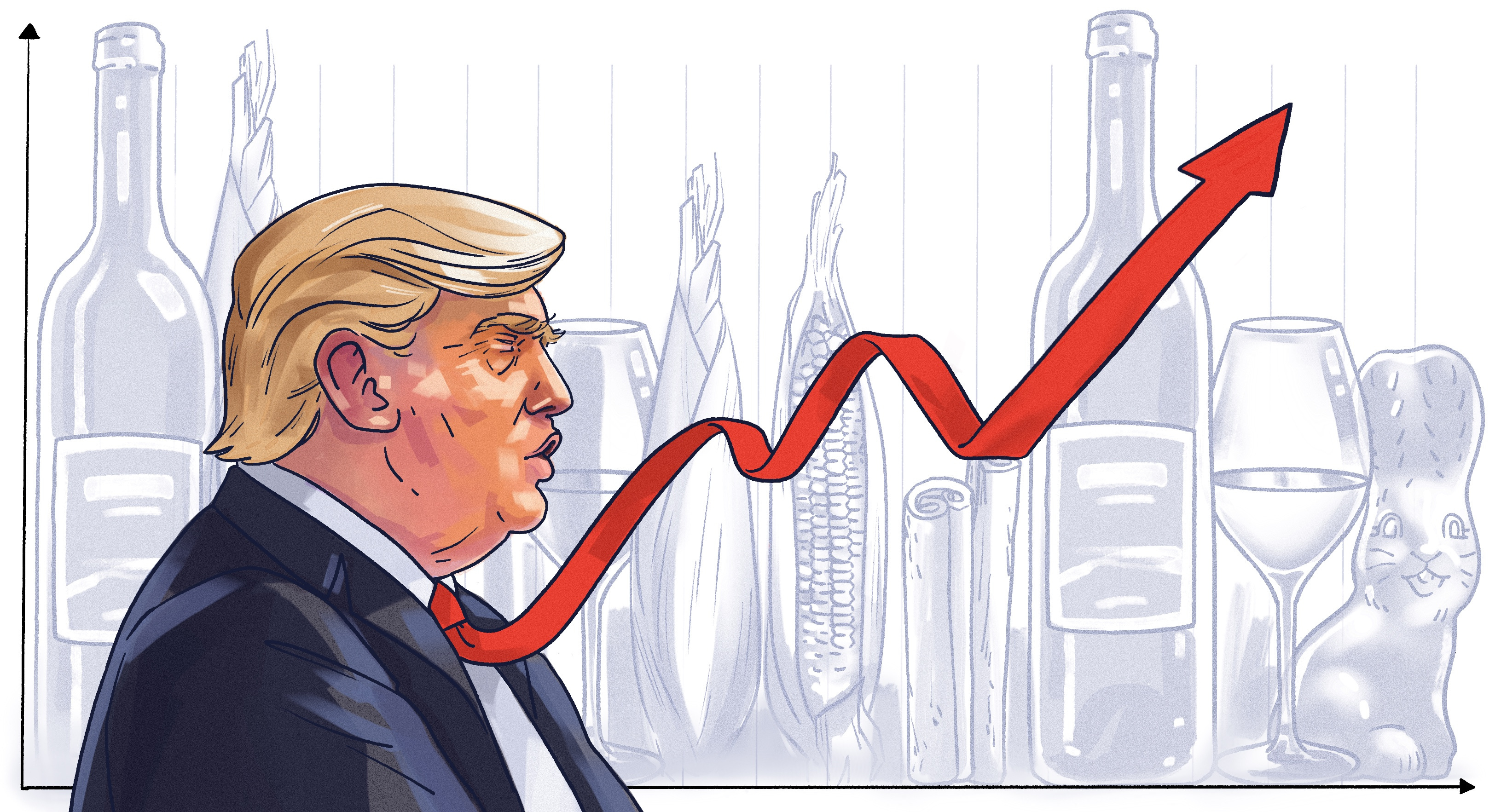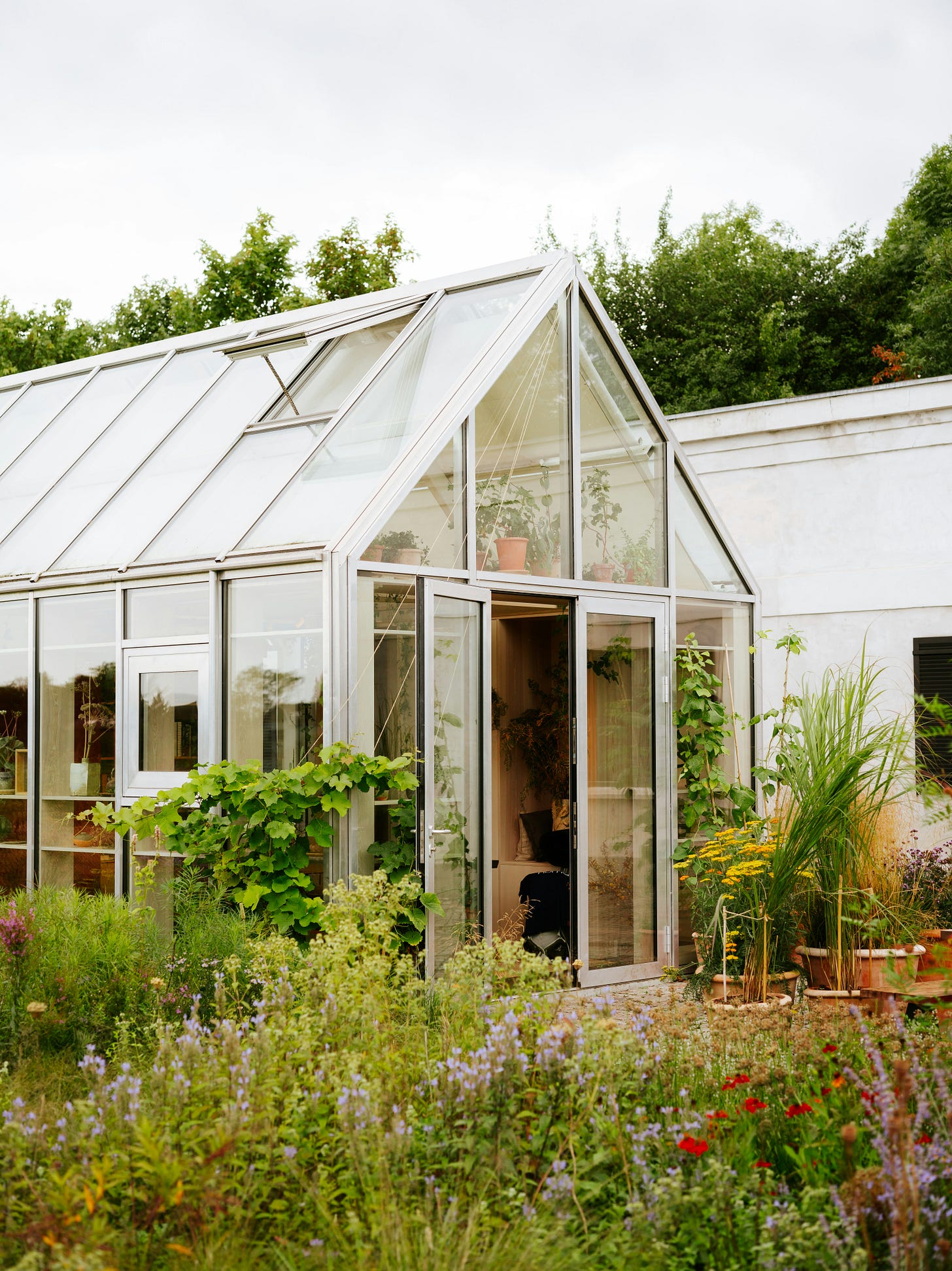In the Tariff Weeds
The only thing that seems certain these days is uncertainty. So we got some expert advice on how to navigate
Ever since Donald Trump resumed office this year and made increased tariffs a central part of his administration’s policy goals, he has plunged restaurants and producers back into the kind of economic tumult not seen since the most Xanax-prescription-increasing days of the pandemic.
For many chefs, restaurateurs and producers, the price increases aren’t even the worst of it. Even harder has been the constant uncertainty. Deadlines, that neared and were extended; percentages that were threatened, then increased, then retracted, then threatened again every time a certain someone in the White House had a temper tantrum or received a compliment.
That’s why many greeted the tariffs that were finally agreed at the start of August—including the 15% duty on goods from the European Union and 35% from Canada—with a degree of relief: the increases weren’t good, but they were less not good than they might have been. And at least there was some kind of clarity. If nothing else, the targets had stopped moving.
Except, of course, that they haven’t. By the end of that same month, Mexico was still waiting. India had been slapped with 50% tariffs for reasons almost entirely unrelated to trade imbalances. A previous agreement that allowed parcels with a value of under $800 to be mailed to the US duty-free (which many small producers around the world had used to ship directly to customers) was cancelled. And to cap it all off, a federal appeals court in the US ruled that Trump’s tariffs themselves are illegal. Just not so illegal that they couldn’t be implemented before the Supreme Court reviews the case or October 14th, whichever comes first.
If you were thinking you were getting clarity, in other words, think again.
“The Administration seems to see tariffs as part of ongoing negotiations,” says Ryan Tuttle, a senior consultant at Euromonitor International, a research and analysis company that focuses on markets and consumers. “So I think it would be a mistake to see any current deal as untouchable. If anything I think there may even be more uncertainty than there was during the spring.”
So how should restaurateurs, producers, and food entrepreneurs navigate the ongoing tumult? In addition to our conversation with Ryan, we spoke to two industry leaders on either side of the Atlantic: Isabel Coss, rising star chef and co-owner of the restaurants Pascual and Lutèce in Washington, DC; and Arianna Occhipinti, the visionary winemaker and farmer of Azienda Agricola Occhipinti in Sicily (and recent MAD Symposium speaker). With their help, we’ve pulled out some key lessons for finding a path through the confusion.
Expect more economic constriction
Ryan notes that although prices in the US on foodstuffs are definitely rising, it’s too early to tell how much of that increase is from tariffs and how much from inflation. And because many companies stockpiled goods in the last several months, they may not have had to make new purchases yet. But, he adds, “this is likely to get worse over time, particularly as we head into the winter and portions of the United States that were in their agricultural growing season naturally taper off for the season – leaving the country more reliant on imports for a time.”
Isabel is already feeling the impact. “All the basic products from Mexico–corn, chiles, avocados–those have all increased.” And it’s not just ingredients. She and her partner have been planning to remodel the kitchen at Pascual because the restaurant have grown, and have found that thanks to tariffs on things like steel–which rose to 50% in June–the cost has jumped. “We got a quote three months ago, and when we went to finalize things everything went up like 20%,” she says. “It wasn’t even the material costs themselves, it was just because they were trying to prepare for when they start construction.”
For her part, Arianna says they are not seeing the tariffs reflected in their profits and losses—so far. “Even with all the noise and confusion, the "numbers" on our balance sheets have not yet been directly impacted by these tariffs,” she says. “Our wine is a handcrafted product, with a deep value that goes beyond the cost of production. We don't work with a "just-in-time" logic; we plan ahead with our importers, and that has given us some breathing room.”
She is, however, detecting a slowdown in the market, with orders from the US coming in with what she describes as more caution. “This isn't just because of the tariffs,” she says, “but it’s spreading from the fear and uncertainty caused by a world that seems increasingly unstable, with conflicts and tensions everywhere. We see our importers in the United States becoming more cautious, restaurants postponing orders, and general demand slowing down.” So while their accounts are still in the black, she adds, there’s “a shift in pace that makes us realize the ground beneath our feet has become less stable.”
Both restaurants and the purveyors who supply them, are likely to encounter more constriction in the months ahead. “If prices are forced higher over the winter, Ryan says, “It is likely we’ll see consumers choosing to dine at home more, or trade down the sorts of places that they patronize.”
Control what you can control
Uncertainty can be paralyzing, but this is no time for sitting back. Arianna is clear on this. “As artisanal producers, we can't base our future on political hopes or promises. We simply can't afford to wait and see. Our strategy—the only one that makes sense to us—is to not give in to passivity.”
The United States is Occhipinti’s second largest market, representing a full 30% of their sales. So the winery is taking action, but judiciously. “We have decided to focus on what we can control: our physical presence,” Arianna says. “We are not planning new advertising campaigns or discounts. The only thing we are planning is to be more present in the United States with promotional events.”
Like Arianna, Ryan stresses the importance of controlling what can be controlled. He expects that restaurants will be forced to pass higher costs on to their customers, but notes that they have other tools available to help them retain guests. ”Paying close attention to keeping skilled staff and experience,” he says, “Can help soften the blow of higher prices.”
Another thing that can be controlled? Knowledge of your own accounts. With prices fluctuating so intensely these days, Isabel has begun paying more detailed attention to bills. “I’m reviewing prices and costing out dishes every week now,” she says.
Be flexible
It was lesson number one during the pandemic, and it’s true again. “Flexibility is key,” Ryan reminds.
For restaurants in the US, that may well mean finding local suppliers for products they have long imported, or swapping one ingredient for another. But it also means pivoting necessary to stay resilient.
Isabel recently removed a lobster dish from the menu because the price of the star ingredient, which her fishmonger had been importing from Canada as rising sea temperatures have diminished populations further south, had increased so tremendously. “It's sad, but sometimes you have to change some menu items that don't make sense any more,” she says.
She and her partner have also had to re-think the approach they’re taking to the French wine bar, called Maison, that they’re opening in DC this fall. “It’s changed the amount of purchasing power we have,” she says of the tariffs. “We would have liked to start with an amazing selection, but now we're going to have to start with something smaller. Instead of getting the case of allocated stuff, we’re going to have to build it little by little.”
Tend your relationships
Maintaining good relations with suppliers and other partners will also help, Ryan notes—and is another factor that businesses can control.
Arianna has an instinctive understanding of why those good relationships matter. “In such uncertain times, trust is our most valuable currency.” To that end, Occhipinti Wines has intensified its contact with importers and other partners. “Not to sell more,” she says. “But to reassure them. We constantly update them on our production and shipments. We organize virtual meetings to show them that despite the external chaos, our passion and commitment remain unchanged.”
The same spirit motivates their plan to step up the number of events they hold in the US. “Our wine philosophy is based on direct contact, on the story we tell, and on the emotion a tasting can convey. A physical presence isn't just a marketing strategy; it's a necessity. Tasting our wine, experiencing our story firsthand, and having the chance to ask us questions directly—all of this builds a bond that no tariff can break.”
Stay true to yourself
Which brings us to a factor that doesn’t get discussed so much in all the anxious discourse surrounding tariffs, but is crucial to keep in mind for the long term: there’s a reason why you got into this business, and it’s worth trying to keep sight of it.
Because there is nothing like a set of core values to help steer through a crisis. At Pascual, Isabel prides herself on sourcing most of her ingredients locally, getting her lamb and vegetables from farms in the region, and even her hoja santa from a nearby grower. But she is committed to ensuring that corn with which she makes her tortillas is Mexican–and not just for its quality and flavor. “For me, it’s a moral issue,” Isabel says.
The centrality of the corn to Mexican identity, and the devastating impact that NAFTA–which has required the country to import the grain from the US, displacing Mexican farmers and introducing genetically modified versions–has had there, have reaffirmed her belief that some things matter even more than food costs. “For us, corn is cultural,” she says. “And we have to defend culture. Because otherwise, culture disappears.”
That same clarity about what matters is guiding Arianna’s work in these tumultuous months as well—and could be applied to hospitality as a whole. “Our strength in this time of uncertainty is our authenticity,” the winemaker says. “We will not succumb to the temptation of lowering prices or compromising our wines to chase a frightened market. I firmly believe that in the end, people seek a genuine product—one that has a soul, that tells the story of a place and a person, and that doesn't change based on the whims of politics or the economy.”
What about you? How are you navigating the upheaval? Have you learned any lessons or acquired any insights? And have you been able to keep sight of your values?
Let us know in the comments.
WHAT WE’VE BEEN UP TO
Seed Chef
Last month MAD launched Seed Chef, a new project that brings together chefs, farmers, and seed producers in Denmark for a better vegetable future.
By fostering conversations and supporting collaborations all along the supply chain, the program aims to boost the range of varieties, nutritional value, and flavor profiles of Danish organic vegetables for both professional kitchens and regular consumers.
The next Seed Chef meeting is on Wednesday, September 3, at Månssons Gård in Brande. Join us from 15.00 to 16.30 for a conversation with chef/restaurateur and MAD7 speaker Emilie Qvist.
Want to become part of the network or learn more? Reach out to project leader Caroline Eybye at ce@madfeed.co.




